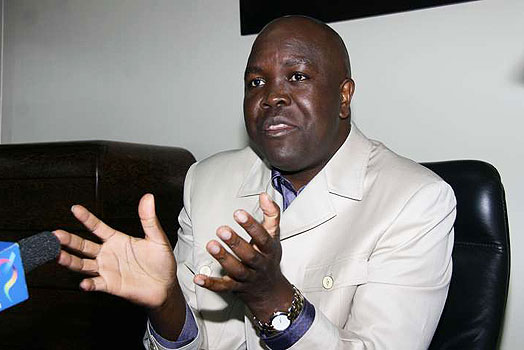Jacob Zuma : Struggle for power in South Africa intensified
 JOHANNESBURG : The struggle for power in South Africa intensified on Wednesday as President Jacob Zuma raged against a resignation order from his own party ahead of a vote in parliament set to throw him out of office.
JOHANNESBURG : The struggle for power in South Africa intensified on Wednesday as President Jacob Zuma raged against a resignation order from his own party ahead of a vote in parliament set to throw him out of office.
Mr. Zuma, whose reputation has been stained by years-long allegations of graft, has been instructed to step down by the African National Congress (ANC) party. But the order is a party-level order and Mr. Zuma — a renowned political survivor — is under no constitutional obligation to obey.
He has to first resign
Unless he resigns beforehand, parliament will hold a vote of no-confidence in the President on Thursday, when the ANC says its lawmakers will finally oust him from power.
Mr. Zuma, who faces as ignomious end to his nine years in office, has been at loggerheads with Deputy President Cyril Ramaphosa, his expected successor and the new head of the ANC. “It was very unfair to me that this [resignation] issue is raised,” Mr. Zuma said in an unannounced TV interview with state broadcaster SABC.
In a rambling 45-minute conversation, Mr. Zuma did not directly refuse to resign, but said that he disagreed with “the manner in which the decision is being implemented.”
He repeatedly said he was not defying the ANC leadership, but added that “I don’t agree, as there is no evidence of if I have done anything wrong.” He said he would make a further statement later on Wednesday.
The ANC on Tuesday had “recalled” Mr. Zuma from his post after days of failed closed-door negotiations with Mr5. Ramaphosa.The party’s national executive committee ordered the recall in a 13-hour meeting at a hotel outside Pretoria.
‘ANC can no longer wait’
ANC treasurer-general Paul Mashatile told reporters that Parliament, where the party has a large majority, would vote out Mr. Zuma on Thursday and could elect Mr. Ramaphosa as President as early as Friday.
“For us, as the ANC leadership, we can no longer wait,” Mr. Mashatile said. “The decision has been taken and must be implemented.” Susan Booysen, a politics professor at Stellenbosch University, said that Mr. Zuma may still resign before a parliamentary vote — albeit grudgingly.
“I think that he is an angry person… and he is very reluctant to go,” Ms. Booysen told AFP.The political wrangle has plunged South Africa — the continent’s most developed economy — into confusion over who is running the country, with last week’s annual State of the Nation address cancelled.
Opposition parties have called for early elections as the ANC’s turbulent transfer of power grinds on. Earlier Wednesday, police raided the Johannesburg home of the Gupta business family, which is accused of overseeing a web of corruption under Mr. Zuma’s rule.
Police said three unidentified people had been arrested in investigations into “Vrede Farm” — allegations that millions of dollars of public money meant for poor dairy farmers were siphoned off by the Guptas.
Local media reported that Mr. Zuma had been pushing for an exit deal that included covering his potentially ruinous legal fees from prolonged court battles against multiple criminal charges.One case relates to 783 payments he allegedly received linked to an arms deal before he came to power.
Many other graft allegations against him have centred on the three Gupta brothers, who are accused of unfairly obtaining lucrative government contracts and even being able to choose Mr. Zuma’s ministerial appointments.
Mr. Zuma has admitted he is friends with the Guptas, originally from India, but has denied any wrongdoing.
Decline of Mandela’s partyMr. Zuma’s presidency has been marred by slow economic growth, continuing racial inequality and record unemployment that have fuelled public frustration.He was scheduled to stand down next year after serving the maximum two terms since coming to power in 2009.
In 2008, Mr. Zuma’s supporters pushed out then-president Thabo Mbeki via a similar “recall” manoeuvre over allegations of abuse of power.In local polls in 2016, the ANC recorded its worst electoral result since coming to power in 1994 with Nelson Mandela at the helm as white-minority rule fell.
Mr. Ramaphosa (65), the Deputy President, must revive the economy and crack down on what he has admitted is rampant government corruption if he is to boost the party’s tarnished reputation before a tricky election next year.
He is a former trade unionist and Mandela ally, who led talks to end apartheid in the early 1990s and then became a multi-millionaire businessman before returning to politics.
Mr. Zuma’s hold over the ANC was shaken in December when his chosen successor — his former wife Nkosazana Dlamini-Zuma — narrowly lost to Mr. Ramaphosa in a vote for the new party leader.
The ANC has insisted there will be no delay to the budget speech, which is due on February 21

